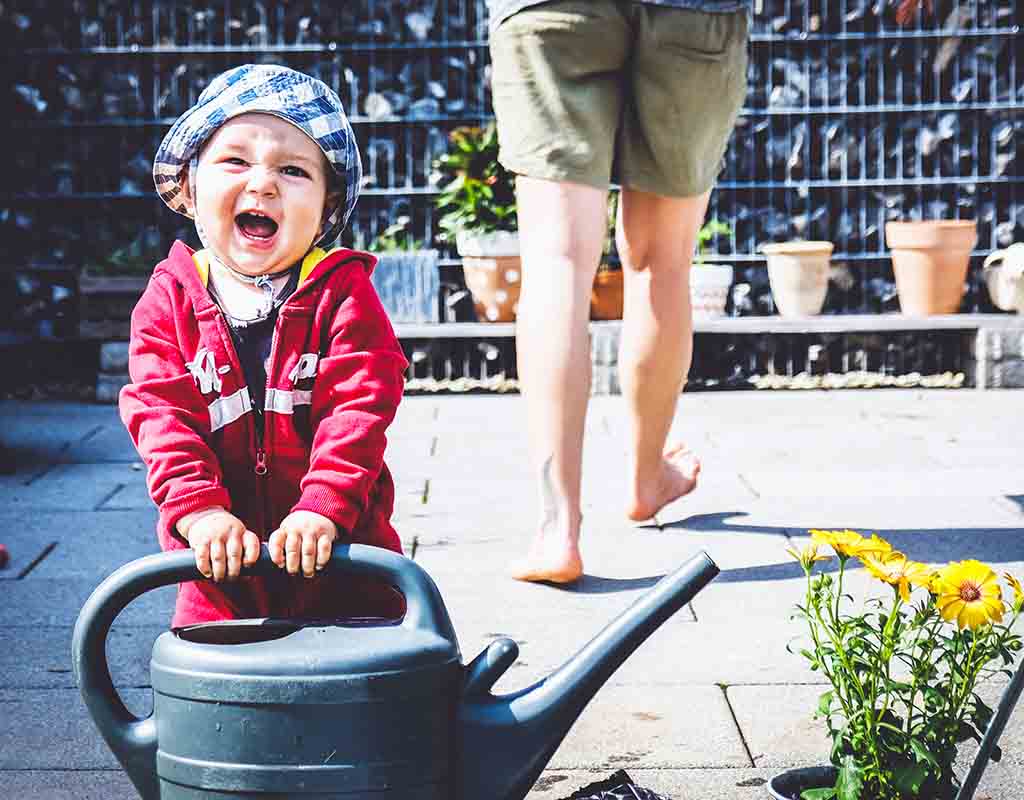Wondering if you and the children should be growing some veges and other edibles but not sure if it’s really worth the bother? Growing food can be extremely rewarding.
Check out all the benefits from involving the kids in helping to grow and prepare some food for the family meals. You’ll be surprised!
1. Know where your food comes from
Particularly for urban children, it can be easy for them to think that food only comes all nice and clean from the supermarket. Watching the plants growing and waiting patiently until they are ready for harvest is much more exciting than a trip to the supermarket.
2. Know what has gone on your food
Unless you’re buying organic vegetables, you can be pretty sure the majority of the fruit and veges you’re buying will have been sprayed with a variety of pesticides multiple times during their lifetime and often packed in plastic.
3. Good for mental and physical health
Getting out into the garden, doing a bit of digging, weeding, planting and harvesting has well-documented physical and mental benefits. It’s also an easy way to top up your Vitamin D, especially in winter (though remember to practise sun safety).
The opportunity for the kids to get their gumboots on (or not!) and dig and get dirty is a great way to let them explore new sensations and the joy of getting wet and dirty. By contributing to the family, you will all build confidence and a sense of pride.
4. Life skills from gardening
There are so many life skills that your children are learning when helping in the garden including responsibility, the importance of timing, the effect of the seasons, patience, gentleness, and even being kind. Gardening develops lots of new skills including how to water plants effectively, fine motor skills (especially when they learn to pick peas out of pods or aphids from plants), gross motor skills when digging, planting, plant propagation, raking and weeding.
5. Life skills from meal preparation
Maths, science, literacy, teamwork, creativity, cutting, measuring, pouring, and so many more skills are developed through meal preparation. Participation in the kitchen can also help young children develop their senses and understand what they are eating. Learning that mistakes are OK and that a bit of creativity can create a new masterpiece are also fun outcomes of helping in the kitchen.
8. Food that tastes better
Food that is grown at home and picked fresh tastes a whole lot better than what you can get from the shops. Often commercially produced edibles have been grown quickly and in semi-artificial conditions and then harvested, stored, transported and stored again before finally making it on the shop shelves. The food you grow at home will be in tune with the seasons and can be eaten fresh from the garden with no food miles involved at all! There really is nothing tastier than standing in the garden eating peas, beans, and strawberries, all warm from the sun, or being able to point out on the dinner plate what was homegrown.
9. Better nutrition
Homegrown edibles that ripen in the garden generally have more nutrients than store-bought vegetables that must be picked early in order to be able to be transported and stored until sold.
10. Be more adventurous with food
Being involved in the growth and preparation of food is a proven way to increase the chances of children trying a new food. Even if they have a nibble of it raw when they are in the garden (when appropriate), it can be an important step in getting more adventurous with food.
What is your favourite edible to grow?
See more:

Written by Robyn
Robyn creates content on Kidspot NZ. Her hobbies include buying cleaning products and wondering why things don’t then clean themselves, eating cheese scones with her friends, and taking her kids to appointments.







Leave A Comment
You must be logged in to post a comment.